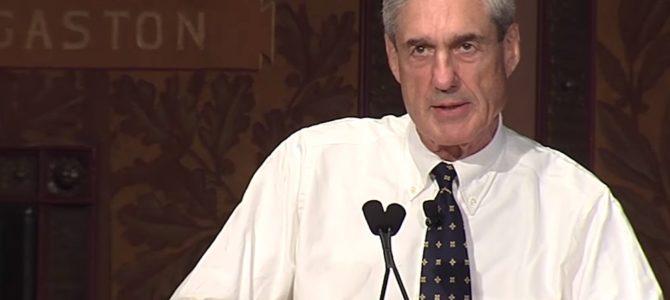
Last week’s federal indictment of 13 Russians for interfering in our political process is a fascinating document. The object of the conspiracy is alleged to have been “impairing, obstructing, and defeating the lawful functions of the United States by dishonest means in order to enable Defendants to interfere with U.S. political processes, including the 2016 presidential election.”
According to the indictment, the defendants started their nefarious activities in 2014 by studying groups on U.S. social media sites. Posing as U.S. persons, they contacted American political and social activists, and, using information derived from these contacts, determined how to structure their disinformation operations in the upcoming presidential election.
Once the presidential campaign started, they used stolen Social Security numbers and birth dates of real U.S. persons to set up bank and PayPal accounts. Through these, the defendants funded their “operations primarily intended to communicate derogatory information about Hillary Clinton, to denigrate other candidates such as Ted Cruz and Marco Rubio, and to support Bernie Sanders and then-candidate Donald Trump.”
Anti-Trump Rallies Were Russian Agitprop Operations
Quoting from the defendants’ communications, the indictment avers that they set up social media accounts to spread content that focused on “politics in the USA” and to “use any opportunity to criticize Hillary and the rest (except [Bernie] Sanders and Trump – we support them).” The indictment outlines a number of online media postings and other efforts that attacked Clinton and encouraged support for Sanders, Green Party candidate Jill Stein, and Trump.
Also while posing as U.S. persons, the indictment says they contacted Trump campaign operatives to provide support. The indictment makes clear that the Trump organizers were unaware of the Russians’ true identities and motives.
Not until page 23 of the 37-page indictment does the defendants’ true purpose begin to come into focus. As stated there, after the election, they organized and promoted rallies “in support of president-elect Trump, while simultaneously using other false U.S. persons to organize and coordinate rallies protesting the results of the 2016 presidential election.”
For example, on November 12, 2016, the defendants and their unnamed co-conspirators organized a rally in New York designed to “show your support for President-Elect Donald Trump” while on the same date they organized a rally in New York called “Trump is NOT my President.” Three days later, they organized a North Carolina rally entitled “Charlotte Against Trump.”
In addition to undercutting the Trump-Russia collusion narrative, these anti-Trump measures make apparent that, rather than achieve any particular electoral result, the defendants intended to promote dissension, bitterness, and distrust among the American electorate. Put another way, they were trying to do in America what Russia has done in other countries by mounting disinformation campaigns to undermine trust and confidence in democratic institutions.
This Isn’t About Trump, But Using Him to Polarize
All of this provides an interesting overlay to the provenance of the infamous Steele dossier and its use by federal law enforcement as probable cause to spy on the Trump campaign and administration. We are told that Christopher Steele, the former British spy and FBI informant, obtained much of his false derogatory information about Trump from Russian sources.
If so, were these sources acting in concert with the defendants to undermine Trump while they simultaneously promoted his candidacy? These seemingly contradictory purposes make sense if the defendants’ goal was not to get Trump elected but instead to cause disruption and to subvert Americans’ acceptance of the electoral result.
Just as the defendants are alleged to have sponsored pro- and anti-Trump rallies after the election, it would not be inconsistent for them or their co-conspirators to attack and undercut Trump, the candidate they were allegedly supporting. The aim wouldn’t be to achieve any particular electoral outcome but to cause turmoil and to undermine Americans’ belief and trust in the integrity of the electoral process.
In announcing the indictment, Deputy Attorney General Rod Rosenstein emphasized that it neither alleges that any American knowingly acted in concert with the defendants nor that the defendants’ efforts changed the outcome of the election. While all of that is undoubtedly true, it must be recognized that the defendants had to have known that their efforts described in the indictment would not have any material effect on the election results. Like everyone else, they could read the polls. Hillary was going to win, and Trump was guaranteed to lose. That solid and inescapable political consensus limited what they could hope to accomplish.
So causing one candidate to win and another to lose was not their goal. They were after a much bigger game. Their mission was to weaken and erode Americans’ confidence in our democratic institutions and to poison and sabotage the acceptance of the election outcome by millions of Americans who supported the losing candidate. In short, they wanted to cause turmoil, dissension, and disorder and to cripple our government. Given the post-election chaos, division, and bitterness, they certainly seem to have achieved their purpose.









